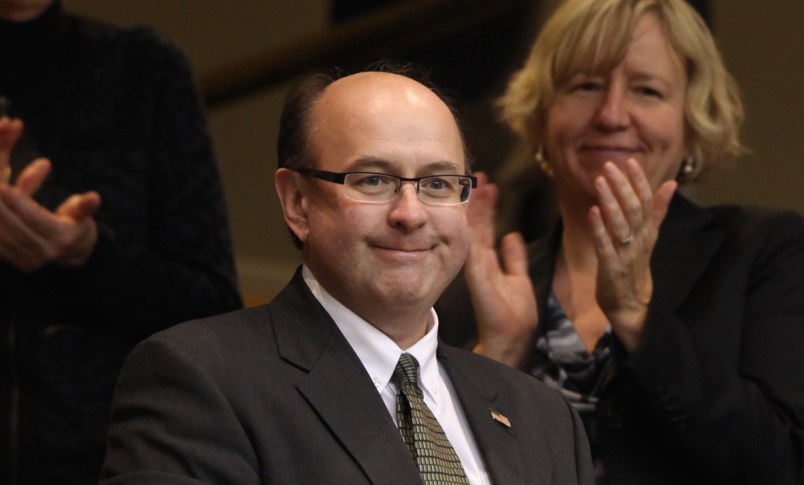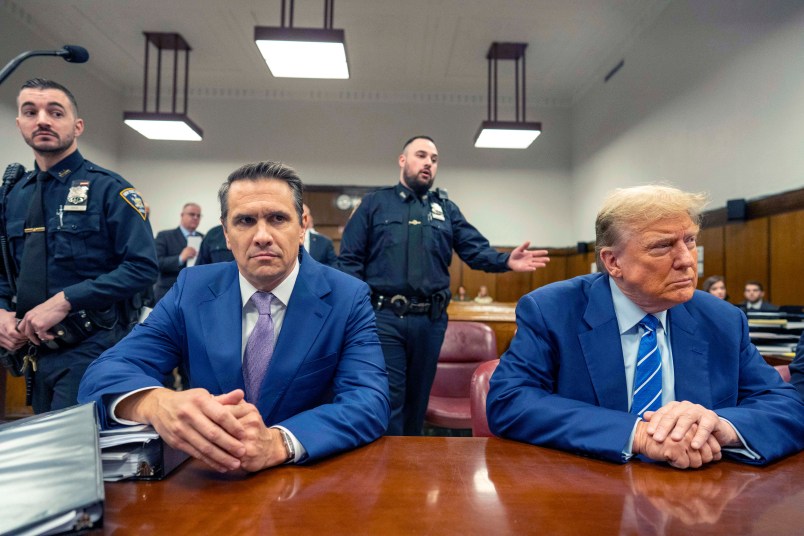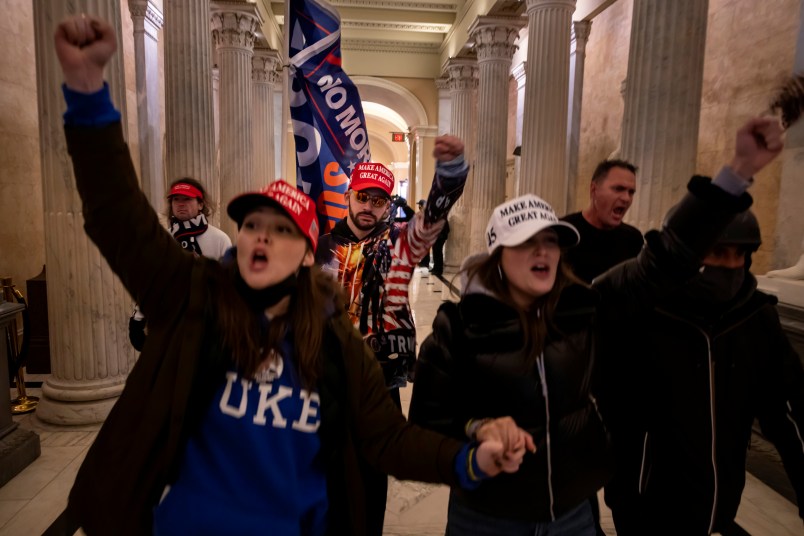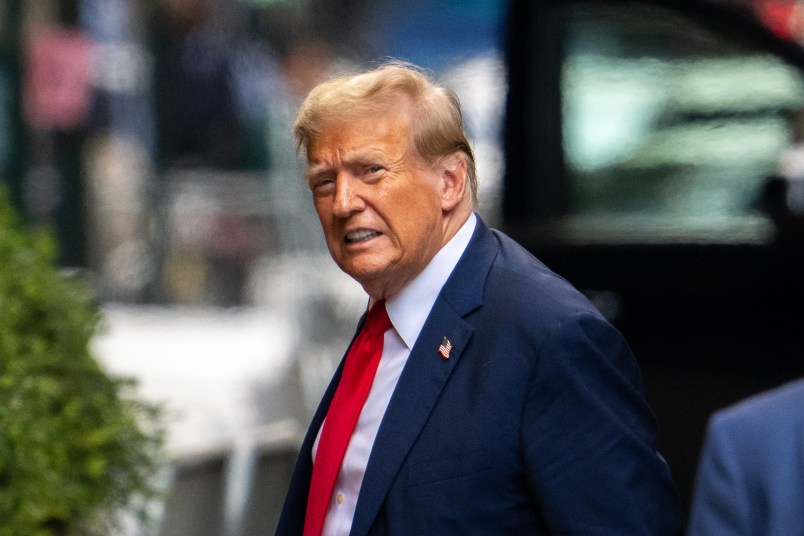An appeals court appeared reluctant Monday to force the Trump administration to produce certain emails from its disbanded voter fraud commission.
The U.S. Court of Appeals for the D.C. Circuit had before it a case brought by a former Democratic member of the commission, Maine Secretary of State Matt Dunlap, who alleged that he was shut out from the commission’s work.
Dunlap so far has been somewhat successful in getting court orders forcing the commission to release to him certain commission communications that happened behind his back.
However, the release of one particular set of documents — emails sent among the commission and its staff about potential appointments to the commission — has been appealed by the Justice Department to the D.C. Circuit Court.
At Monday’s hearing, Dunlap’s attorney Harry Sandick said that Dunlap is entitled to access those emails, so that he can author his own public response to how the commission operated before it was dismantled.
The judges on the appellate court panel showed extreme skepticism towards his arguments that those emails qualify as “substantive” work of the commission that Dunlap otherwise had a right to view.
D.C. Circuit Court Chief Judge Merrick Garland wondered how such a ruling would affect future presidents and future commissions, and a president’s ability to seek candid advice on commission appointments.
“You don’t think we need to be wary at all on the president’s power to make appointments or receive advice” related to appointments, Garland asked Sandick.
The documents in question are 20 or so emails, some of which were sent by far-right voter fraud alarmists Hans von Spakovsky and Christian Adams, who were named to the commission the summer of 2017.
A February 2017 email released under the Freedom of Information Act revealed that von Spakovsky — with Adams cc’d — complained to close allies of then-Attorney General Jeff Sessions about the plans to make the commission “bipartisan” and to “include Democrats.”
“If they are picking mainstream Republican officials and/or academics to man this commission it will be an abject failure because there aren’t any that know anything about this or who have paid any attention to this issue over the years,” the email said. “Christian and I are concerned that this commission is being organized in a way that will guarantee its failure.”
It’s unknown whether the emails being litigated in the current case express a similar tone, but the district court judge who had previously ordered their release has described the emails being about “potential Democratic commissioners.
The emails “could illuminate ways in which Plaintiff’s substantive contributions were inhibited at the time,” the judge Colleen Kollar-Kotelly, who has viewed the emails, has said.
Nonetheless, the appellate court judges on Monday signaled that they believed the emails to be procedural in nature, rather than substantive of the committee’s work.
“The executive order [creating the commission] says the President should appoint members,” Garland said. “It’s not part of [the commission’s] mission” to select members.
Judge Stephen Williams said it “seems to be a stretch by possible use of the English language” to say a commissioner’s right to substantive work applied to those emails.
“In this context, personnel is policy,” Sandick responded.
Part of the issue in the case is that the relevant emails included an official from the vice president’s office who was also serving on the staff of the commission.
Sandick said that administration put the vice president on the commission and that the administration chose to create the commission under Federal Advisory Committee Act, which mandates certain transparency obligations.
Once you create a FACA-commission, “you open the door…” Sandick started to say.
“The question is, how wide do you open it?” Williams interjected.










